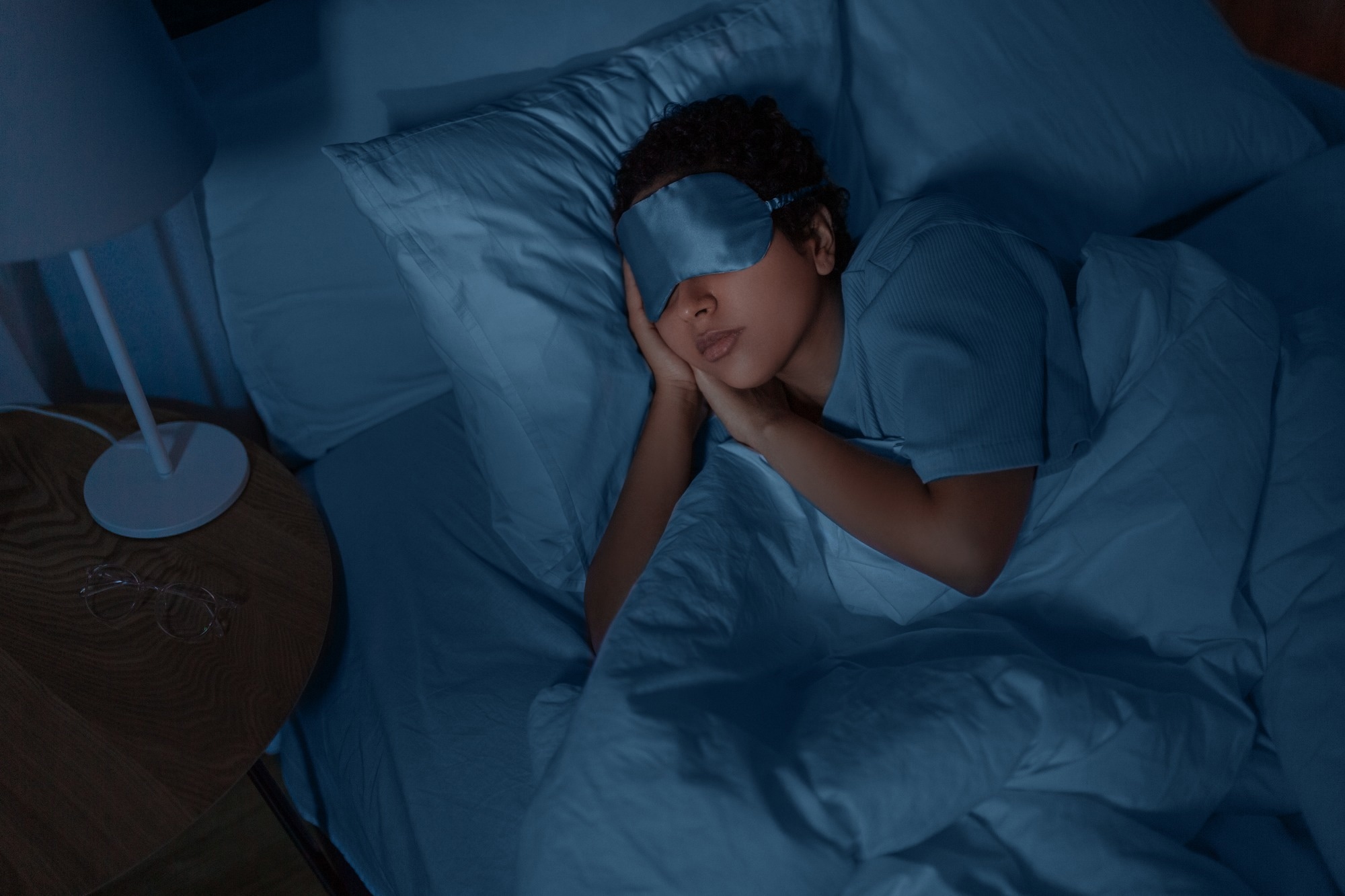
[ad_1]
A current research revealed in Scientific Reports investigated the associations between sleep high quality and well being parameters in older adults with weight problems.
 Study: Sleep quality is a predictor of muscle mass, strength, quality of life, anxiety and depression in older adults with obesity. Image Credit: GroundPicture/Shutterstock.com
Study: Sleep quality is a predictor of muscle mass, strength, quality of life, anxiety and depression in older adults with obesity. Image Credit: GroundPicture/Shutterstock.com
Background
The prevalence of weight problems amongst older people has been growing worldwide. Obesity could affect physiological processes and bodily or psychological well being throughout getting old. Further, the hostile getting old results on sleep problems could also be aggravated by weight problems. Sleep has been acknowledged as a vital determinant of well-being and well being.
Sleep impairments are prevalent in older populations. Evidence suggests sleep deprivation can induce a pro-catabolic setting and anabolic resistance.
As such, low sleep high quality could worsen anabolic resistance noticed in older folks, particularly these with weight problems, contributing to muscle weak spot, physique composition disturbances, and low high quality of life.
About the research
In the current research, researchers explored the associations of sleep high quality with muscle power, high quality of life, melancholy, nervousness, and physique composition of older adults with weight problems. This cross-sectional research was carried out from June 2021 to July 2022 in Sao Paulo, Brazil. Adults aged 65 or older with weight problems have been recruited via social media commercials.
Sleep high quality was assessed utilizing the Pittsburgh sleep high quality index (PSQI), which evaluates sleep high quality over a month via a questionnaire. Participants have been stratified nearly as good and poor sleepers based mostly on PSQI scores; decrease PSQI scores replicate good sleep high quality.
Body weight and peak have been decided from which physique mass index (BMI) was derived. Participants underwent dual-energy X-ray absorptiometry for fats or lean mass quantification.
Appendicular lean mass (ALM) was estimated, and handgrip power was assessed. The short-form well being survey (SF36) was administered to look at health-related high quality of life. Lower scores on SF36 point out a worse situation.
The Geriatric Anxiety Index (GAI) and Depression Scale (GDS) have been used to judge nervousness and melancholy, respectively.
Differences between poor and good sleepers have been examined utilizing unbiased t-tests. Linear regression fashions have been constructed to confirm associations of sleep high quality with outcomes, similar to high quality of life, handgrip power, and ALM.
One mannequin was adjusted for intercourse and age, and the opposite was moreover adjusted for BMI and comorbidities (pulmonary illnesses, hypertension, psychiatric illnesses, sort 2 diabetes, and rheumatic illness).
Findings
The research comprised 95 individuals, together with 46 good and 49 poor sleepers. The imply PSQI of fine sleepers was 3.54 in comparison with 8.86 for poor sleepers. Poor sleepers had decrease ALM, ALM-to-BMI ratio, and handgrip strength-to-BMI ratio than good sleepers. Besides, poor sleepers exhibited increased relative fats mass than good sleepers.
SF36 revealed decrease scores on psychological and bodily domains in poor sleepers than in good sleepers. Poor sleepers additionally had decrease scores on SF36 sub-scales similar to basic well being, psychological well being, vitality, and physique ache than good sleepers. The social and bodily operate and role-emotional points didn’t differ between the 2 teams.
Furthermore, poor sleepers had increased melancholy and nervousness than good sleepers. Crude fashions revealed an inverse relationship between sleep high quality with high quality of life for bodily and psychological domains, ALM-to-BMI ratio, nervousness, and melancholy.
These associations have been important even after adjusting for covariates. However, there have been no important associations between sleep high quality and handgrip power.
Conclusions
In sum, the researchers evaluated how sleep high quality impacts muscle power, physique composition, melancholy, high quality of life, and nervousness in older folks with weight problems. Participants with poor sleep had decrease relative and absolute ALM and handgrip power however the next physique fats proportion than good sleepers.
Further, poor sleepers had decrease scores on melancholy, nervousness, and psychological or bodily well being than good sleepers. The linear regression fashions confirmed poor sleep high quality was related to decrease ALM, poor psychological or bodily well being, and better melancholy and nervousness.
The research’s limitations embody the low pattern measurement, incapacity to objectively assess sleep high quality or problems, and lack of controls.
Taken collectively, the findings hyperlink poor sleep high quality to increased nervousness and melancholy, poor high quality of life, and decrease ALM and handgrip power in older people with weight problems, warranting additional analyses to discover potential methods for sleep high quality enhancements to stop poor outcomes on this subset of the inhabitants.
[adinserter block=”4″]
[ad_2]
Source link